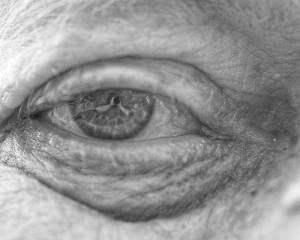Euthanasia: Are you for or against?

 The quickest and surest way to stifle conversation is to raise the issue of Euthanasia. But should we, as mature thinking people, consider whether there are some circumstances in which it is acceptable that life should be intentionally ended?
The quickest and surest way to stifle conversation is to raise the issue of Euthanasia. But should we, as mature thinking people, consider whether there are some circumstances in which it is acceptable that life should be intentionally ended?
There are some people who hold that – regardless of the circumstances – euthanasia is morally wrong. For these people the issue should not even be contemplated, and certainly not discussed.
Those who hold these views should of course be respected. However, it is suggested that they are not in sufficient numbers to disallow the topic being debated.
This is not to argue that debate will necessarily come up with the conclusion that there are any circumstances in which euthanasia should be condoned by a society and thus made legal. Or that there are methods of euthanasia that are considered acceptable (or unacceptable).
But polls suggest that it is probably the case that there are some ‘cases’ that would attract widespread support – for example that of an old person, of sound mind, who has a terminal illness for which there is at the present time no known cure and who is suffering pain and distress – and causing it to others. In such circumstances they should be able to take action to terminate their life.
However, there are other circumstances where the argument is less clearcut. They may arise, for example, where a person is younger in age and where the development of medical science may be such as to find a way of treating their ailment so that they can live a life that brings them (and possibly others) happiness. Or that a person suffering an ailment, no matter how ultimately life-threatening it may be, is not suffering any pain or distress.
At the risk of reducing the discussion to terms that some may consider to represent a moral vacuum and of treating the subject too clinically, but in the interests of expressing our views more precisely, we could express our views in terms of a diagram such as drawn below.
The downward-sloping line may be termed a ‘Gain from Life’ (GL) line. The GL for any person may be expected to decline over time. The decline will be approximately in accordance with a person’s age, though illness (or lack of it) may cause one person’s GL to fall below zero at an earlier or later age than others (or perhaps never at all). Should the line fall below zero (although as noted some people define the value of life in terms that would never accept that the GL can be less than zero) then the possibility of permitting the intentional termination of life can be contemplated.
The level of the GL of a person’s life at any point in time will be influenced by two main considerations:
- how an individual themself values their own ‘happiness’ with life (this being influenced perhaps by their own evaluation of the effect that their continuing life has on others); and
- how the welfare of others (especially close relatives and acquaintances, including in particular those who may take responsibility for ‘caring’ for the person in some way) are affected by the person continuing to live.
These considerations will either increase or decrease the GL of a person at any point in time and will influence the height of the line above zero, its slope, and the age at which, in any particular case, a person’s GL may be considered to become negative.
Most people die when their GL is well above zero – people who were enjoying life themselves and contributing to the welfare of others.
If, however, their VL falls below zero it may be that the intentional termination of their life would actually add to either their own welfare and/or that of others. For these people their death signals either or both an end to unhappiness and pain felt by themselves and/or to them being a burden in some sense to others. In these circumstances euthanasia can be contemplated.
The issue is complicated considerably if an individual is not in a position to make a rational decision about these matters themself. This can occur because of mental illness, most commonly in the case of dementia. This then raises the question of the circumstances under which the intentional termination of life can be considered acceptable where an individual’s GL has fallen below zero but they are not of ‘sound mind’. Is ‘involuntary euthanasia’ acceptable under any circumstances? What about instances where a person has said formally at an earlier age that they don’t wish to live if they are no longer gaining enjoyment from life and/or that they are being a burden to others?
If euthanasia that is not initiated by the person themselves is accepted how then should we, as a society, define the circumstances and procedure according to which this should be considered legal?
But this is getting ahead of ourselves. There are more fundamental issues of principle to be addressed first.
What is your position on this?
![photo[1] (1)](https://i.startsatsixty.com.au/wp-content/uploads/20150916205843/photo1-1-300x225.jpg)








 Proudly Australian owned and operated
Proudly Australian owned and operated